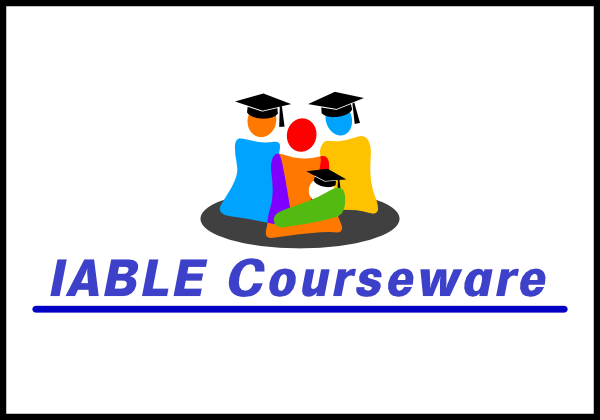Cost
$15.00 non-members
$13.50 members (must be logged in to receive the discount)
Includes access to the eCourse for 1 year
Overview
This 90-minute course involves the review of research abstract reviews regarding breastfeeding and the premature infant.
Objectives
- Explain the effect of supplementation via cupfeeding on breastfeeding success among preterm infants
- Describe the relationship between late onset sepsis and breastfeeding for preterm infants
- Identify the relationship between nipple shield use and exclusive breastfeeding for premature infants
- Describe the relationship between breastfeeding and supplementation via finger feeding vs syringe for preterm infants
- Describe the benefit of oral immune therapy with colostrum for preterm infants on mechanical ventilation
- Describe the effect of bottle feeding on breastfeeding success among preterm infants
Topic Outline- Review the Clinical Question and Review the Abstracts of the Following Articles
- • Penny F, Judge M, Brownell E, McGrath JM. Cup Feeding as a Supplemental, Alternative Feeding Method for Preterm Breastfed Infants: An Integrative Review. Matern Child Health J. 2018 Nov;22(11):1568-1579. doi: 10.1007/s10995-018-2632-9
- • El Manouni El Hassani S, Berkhout DJC, Niemarkt HJ, Mann S, de Boode WP, Cossey V, Hulzebos CV, van Kaam AH, Kramer BW, van Lingen RA, van Goudoever JB, Vijlbrief DC, van Weissenbruch MM, Benninga MA, de Boer NKH, de Meij TGJ. Risk Factors for Late-Onset Sepsis in Preterm Infants: A Multicenter Case-Control Study. Neonatology. 2019;116(1):42-51. doi: 10.1159/000497781
- • Maastrup R, Walloee S, Kronborg H. Nipple shield use in preterm infants: Prevalence, motives for use and association with exclusive breastfeeding-Results from a national cohort study. PLoS One. 2019 Sep 20;14(9):e0222811. doi: 10.1371/journal.pone.0222811
- • Emel Buldur, Nalan Yalcin Baltaci, Demet Terek, Mehmet Yalaz, Ozge Altun Koroglu, Mete Akisu, and Nilgun Kultursay Comparison of the Finger Feeding Method Versus Syringe Feeding Method in Supporting Sucking Skills of Preterm Babies Breastfeeding Med 15(11) 2020; 703-708
- • Chen XC, Tong YF, Han ZM, Lin ZL. The Effects of Early Oropharyngeal Administration of Microdosed Colostrum on Feeding Status in Ventilated Extremely Low-Birth-Weight Infants. Breastfeed Med. 2021 Aug;16(8):648-653. doi: 10.1089/bfm.2020.0244
- • Allen E, Rumbold AR, Keir A, Collins CT, Gillis J, Suganuma H. Avoidance of bottles during the establishment of breastfeeds in preterm infants. Cochrane Database Syst Rev. 2021 Oct 21;10(10):CD005252. doi: 10.1002/14651858.CD005252.pub5
Accreditation
CMEs: This Enduring Material activity, Abstract Reviews Regarding Breastfeeding the Premature Infant, has been reviewed and is acceptable for 1.5 credit by the American Academy of Family Physicians. Physicians should claim only the credit commensurate with the extent of their participation in the activity.
CERPs: If this course is purchased by December 31st, 2025, this course has been allocated 1.5(L) CERPs recognized by IBLCE. Long Term Provider #117-04.
If this course is purchased on or after January 1st, 2026, according to the International Board of Lactation Consultant Examiners® (IBLCE®) Individual CERPs Guide for Recertification, Section IIIA, education that has been awarded educational credit by another board or organization may be counted as CERPs. All IABLE courses both live and enduring are awarded continuing education credits (CMEs) from the American Academy of Family Physicians. Each CME credit can be counted as one CERP. There is no limit to the number of CMEs that can be counted as CERPs.
Nursing Credits: All state boards for nursing licensure approve of educational offerings that are approved by the American Nursing Credentialling Center (ANCC)
According to ANCC Certification, the continuing education hours approved by the AAFP and AMA PRA Category 1 Credits™ meet the requirement of formally approved continuing education hours and may be used as such for ANCC Certification renewal. https://www.nursingworld.org/certification/faqs/
Author Biography
Anne Eglash MD, IBCLC, FABM, is a clinical professor with the University of Wisconsin School of Medicine and Public Health, in the Department of Family and Community Medicine. In addition to family medicine, she has been practicing breastfeeding medicine since 1994.
Dr. Eglash is a cofounder of the Academy of Breastfeeding Medicine, the Medical Director and cofounder of the Mothers’ Milk Bank of the Western Great Lakes, and the Medical Director of the University of Wisconsin Breastfeeding Medicine Clinic. She has published many peer- reviewed articles on breastfeeding medicine, has been the lead author on several Academy of Breastfeeding Medicine protocols, and has been an associate editor for Breastfeeding Medicine Journal.
She co-hosts and produces a free bimonthly breastfeeding medicine podcast series, called The Breastfeeding Medicine Podcast.
Dr. Eglash is founder and president of The Institute for the Advancement of Breastfeeding and Lactation Education (IABLE), a nonprofit organization dedicated to the creation of breastfeeding-knowledgeable medical systems and communities.
Conflicts of Interest
None
1.5 I Development & Nutrition

